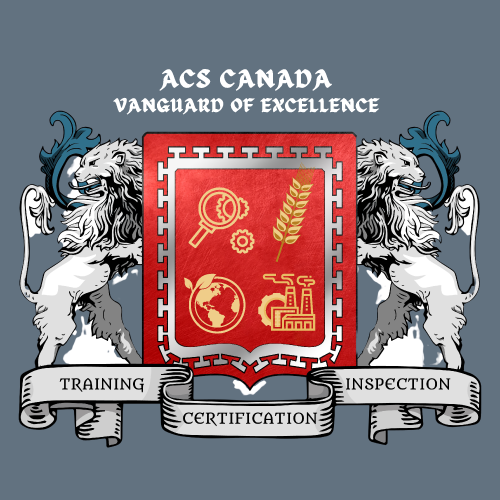GDP Certification

GOOD DISTRIBUTION PRACTICE
Storage and distribution are critical operations in the management of food and pharmaceutical supply chains. As an accredited certification body for ISO 9001 and ISO 22000 in both the food and pharmaceutical scopes, accredited by the International Accreditation Service (IAS-IAF), we understand the significance of maintaining stringent standards in these industries.
Handling, storing, and distributing products along the supply chain involves numerous stakeholders and poses inherent risks at various stages, including procurement, storage, distribution, transportation, repackaging, and relabeling. Our expertise lies in assisting organizations operating in the food and pharmaceutical sectors to navigate these challenges while upholding the highest quality and safety standards.
Through our accreditation for ISO 9001, we emphasize the importance of quality management systems in ensuring efficient operations, customer satisfaction, and continuous improvement. Simultaneously, our accreditation for ISO 22000 underscores our commitment to food safety management systems, encompassing strict control measures for hazard analysis, critical control points, and regulatory compliance.
By leveraging our expertise and accreditation in both food and pharmaceutical scopes, we provide comprehensive certification services that encompass the storage and distribution aspects of these supply chains. Our certifications validate the adherence to internationally recognized standards, instilling trust and confidence in the quality and safety of products throughout the entire journey, from production to consumer consumption.
GDP exerts a direct influence on both the quality and safety of food and pharmaceutical products. In the context of food products, the risk of contamination or infection can arise at various stages, particularly during distribution, transit, and bulk storage preceding distribution. Similarly, within the pharmaceutical industry, proper handling and storage are crucial to maintaining the integrity and efficacy of medicines.
In both sectors, Good Distribution Practices (GDP) play a significant role in ensuring product traceability. By effectively tracking the origin and chain of distribution, GDP facilitates the identification and removal of contaminated or spoiled products from the market during food safety or pharmaceutical recall emergencies. This traceability is essential in promptly addressing potential risks and safeguarding consumer health.
Moreover, GDP guidelines encompass a range of quality control measures that are applicable to both food and pharmaceutical products. These measures include appropriate storage conditions, temperature controls, sanitation protocols, and documentation requirements. Adhering to GDP principles fosters the implementation of standardized processes and safeguards the integrity and safety of products throughout their journey from manufacturing to end-consumer.
At our accredited certification body, we recognize the criticality of GDP in both the food and pharmaceutical sectors. As such, we offer certification services tailored to the specific requirements of these industries, providing assurance to businesses and consumers alike that the highest standards of quality, safety, and traceability are upheld throughout the distribution process.
The application of Good Distribution Practices (GDP) extends to encompass all individuals and establishments involved in any aspect of storing and distributing food, agricultural goods, and pharmaceutical products. This comprehensive framework encompasses a diverse range of entities, from farms and manufacturing facilities to grocery stores that directly serve customers.
Within the food and agricultural sectors, this includes various stakeholders such as manufacturers, wholesalers, brokers, suppliers, distributors, logistics providers, traders, transport companies, forwarding agents, and their respective personnel. Each entity within this network plays a critical role in ensuring the safe and efficient flow of food and agricultural goods from production to consumption.
Expanding the scope to include the pharmaceutical industry, GDP guidelines apply to the storage and distribution of pharmaceutical products as well. This encompasses manufacturers, wholesalers, distributors, pharmacies, hospitals, healthcare facilities, and other relevant entities involved in the handling and transportation of pharmaceutical goods.
In both the food and pharmaceutical sectors, adherence to GDP standards is crucial to safeguarding the integrity, quality, and safety of products throughout the entire supply chain. Compliance with GDP principles ensures that appropriate storage conditions, temperature controls, hygiene practices, and traceability systems are in place. It also emphasizes the training and qualifications of personnel involved in handling these goods, thereby minimizing the risk of contamination, spoilage, or compromised product efficacy.
As an accredited certification body, we understand the significance of GDP across the food and pharmaceutical industries. Our certification services extend to cover the diverse range of entities involved in the trading, storage, and distribution of food, agricultural goods, and pharmaceutical products. By obtaining certification, organizations demonstrate their commitment to upholding the highest standards of quality, safety, and traceability in their respective sectors.
BENEFIT OF GDP CERTIFICATION FROM ACS CANADA
Prove that your distribution and traceability system is properly designed and implemented,
Prove that your distribution system poses no risk to products and the end consumer,
Prove that your distribution system operates internationally and is just as reliable,
Reassure upstream companies and food inspection agencies if they need to collect the product immediately from the market.
Training at ACS Canada
ACS employs accelerated learning methods to ensure a comprehensive grasp of all certificates. Our approach involves contextualizing your learning through a wide array of options, including classroom instruction, workshops, as well as interactive and online sessions.
GDP Certification Training - 1
GOOD AGRICULTURAL PRACTICE

GAP-GENERAL
GOOD AGRICULTURAL PRACTICE(GAP) Training Course Why GAP training? The application of existing knowledge to the sustainable use of the natural resource base for the production of safe, healthy food and non-food agricultural products in a sustain manner, while maintaining economic viability and social stability, is the concept of Good Agricultural Practices. The GAP depict the […]
More About This CourseGDP Certification Training - 2
GMP Requirements

GMP – Requirements & Documentation
This course aims to teach the principles and practices of GMP requirements in the food industry.
More About This CourseGDP Certification Training - 3
QMS REQUIREMENTS

ISO 17025 – Requirements
The aim of this course is to provide delegates with the knowledge and skills required to understand ISO 17025 requirements.
More About This CourseGDP Certification Training - 4
HACCP REQUIREMENTS

HACCP – Requirements & Documentation
The aim of this course is to provide delegates with the knowledge and skills required to understand HACCP requirements and documentation.
More About This Course
